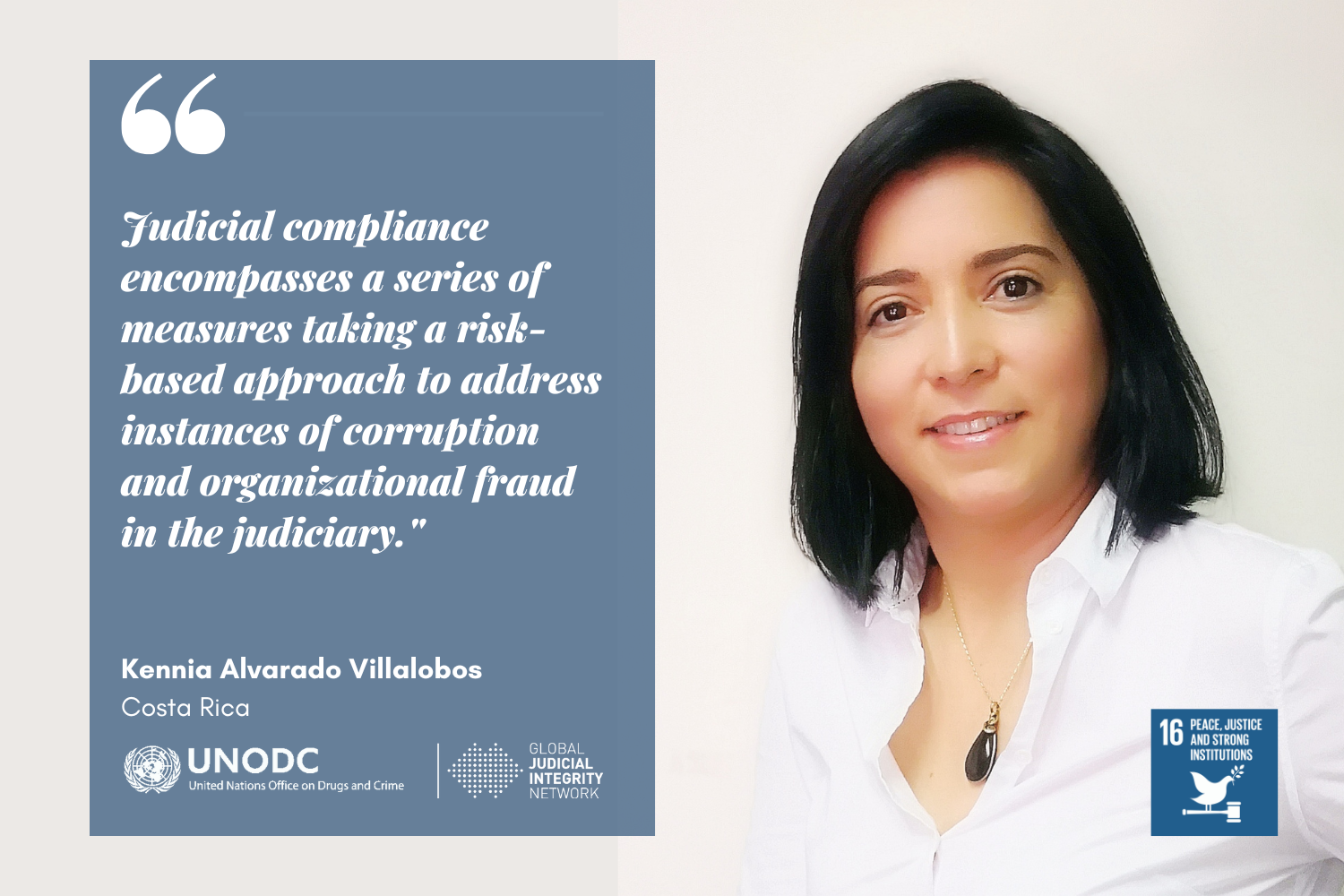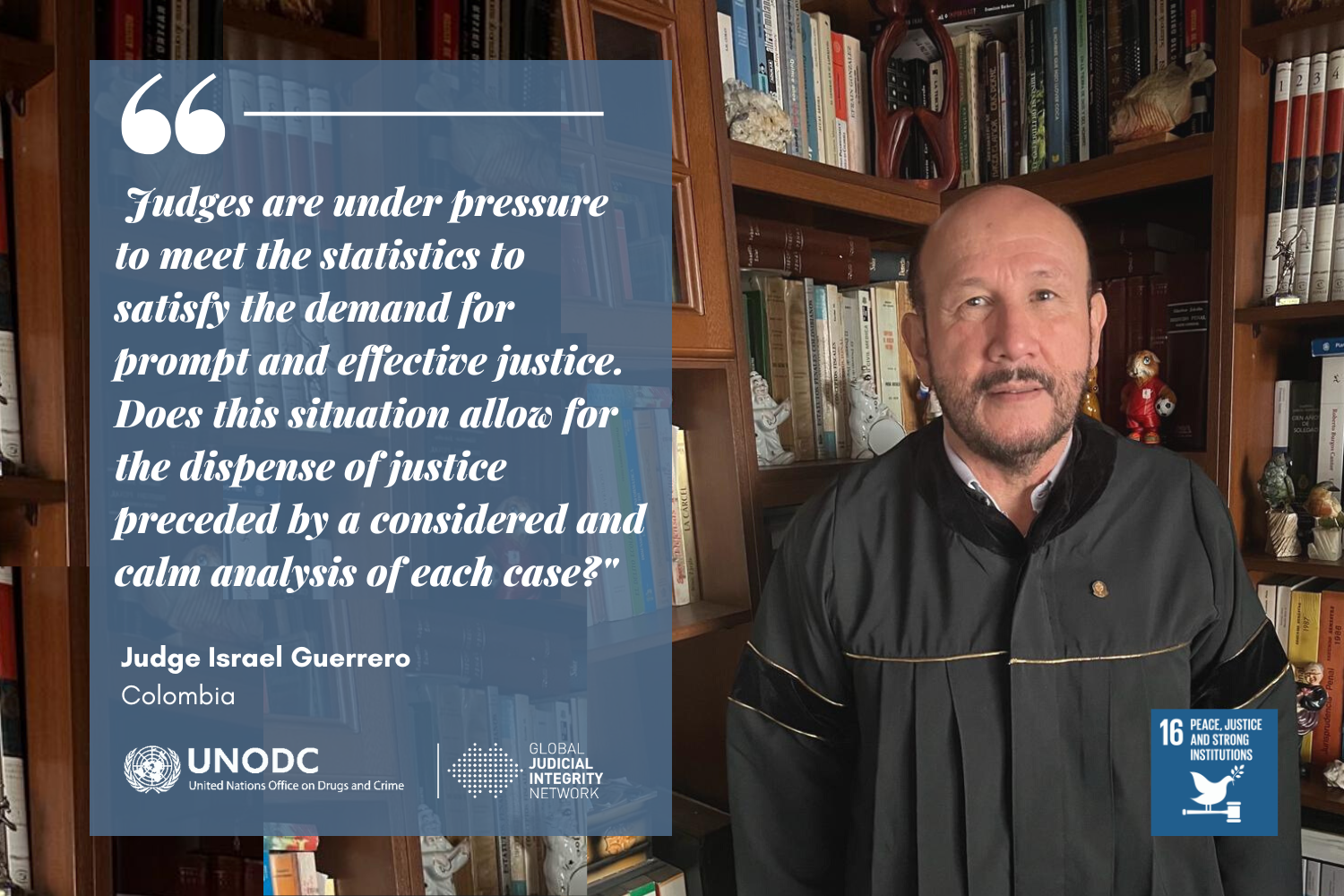Florida's Judicial Qualifications Commission: Holding Judges Accountable
By: Judge Keathan Frink
Judge Keathan Frink is a judge in the 17th Judicial Circuit Court in the State of Florida in the United States. All opinions expressed in this piece are solely those of the author as an external expert and do not necessarily reflect the official position of UNODC.
______________________________
Florida's official nickname is "The Sunshine State" because of its warm weather throughout the year, but to those who work with Florida's government, it is considered "The Sunshine State" because of the public's access to Florida's branches of government. Any citizen can simply make a public records request to obtain information about almost any activity of Florida's government. This access to information includes Florida's judiciary and certain disciplinary actions. In fact, cases of judicial misconduct where probable cause has been found and formal charges filed are published on the website of the Supreme Court of Florida.
Created in 1966 by amendment of the Florida Constitution, the Judicial Qualifications Commission ("JQC") is an independent state agency tasked with investigating allegations of misconduct and disability by all judges within the state of Florida. The JQC does not advise on whether certain conduct violates Florida's Code of Judicial Conduct as that is the job of the Judicial Ethics Advisory Commission. Small but powerful, the agency known as the JQC is staffed by only four employees. The Commission members, however, are a collection of six judges, five laypersons selected by Florida's Governor, and four members of The Florida Bar Association. The Chair of the Commission selects nine members to serve on the Investigative Panel and six members to serve on the Hearing Panel.
The JQC acts based on complaints received by individuals claiming a judge has acted unethically. The complaint and investigation process is as follows [1]:
- First, the signed complaint forms are received by the Commission staff.
- Second, the nine members of the JQC Investigative Panel review the complaint to determine whether the allegations constitute a breach of Florida's Judicial Canons. If so, then the work of the JQC continues, if not the complaint is dismissed. The JQC receives numerous complaints of judges simply based on rulings made in court. Many of those complaints are dismissed and the JQC does not inform the judge of a complaint unless an investigation is launched.
- Third, the subject judge is notified of the complaint and is provided with a Notice of Investigation and requested to appear before the Investigative Panel.
- Fourth, the subject judge appears before the Investigative Panel to provide an explanation about the allegations contained within the complaint and answer the Panel's questions.
- Fifth, concluding the inquiry of the judge, the Investigative Panel decides whether probable cause exists to initiate formal disciplinary proceedings. If probable cause is not found to exist, then the complaint is dismissed (or it may be passed for further investigation by the Commission). If probable cause exists, then the matter proceeds to the next step.
- Sixth, the Investigative Panel and the subject judge may reach an agreement or Stipulation on the appropriate discipline or sanction. This agreement is then presented for review to the Florida Supreme Court, which is responsible for disciplining and removing judges within the state. If the Stipulation is rejected, the matter is returned to the JQC to reach a new stipulation. Alternatively, if no stipulation is able to be reached, the Investigative Panel will refer the matter to the Hearing Panel of the JQC, leading to the final step in the process.
- Finally, the six-member Hearing Panel of the Commission holds a formal evidentiary hearing regarding the alleged misconduct. While proceedings before the Investigative Panel are confidential, this hearing is open to the public who can attend the hearing in person. Following the hearing, the Hearing Panel presents its findings to the Florida Supreme Court for review.
Judges found in violation of the Judicial Canons are subject to a range of sanctions from private admonishment, to public reprimand, fines, suspension, and even removal from the bench. The time it takes to complete an investigation can vary. The Investigative Panel meets approximately every six weeks and a determination to proceed with an inquiry into alleged misconduct could last several weeks to months. If the Investigative Panel decides to proceed to a formal hearing, the process can take a year or more before a final decision is rendered. During that time, the judge may or may not be permitted to continue serving on the bench depending on the nature and severity of the allegations of misconduct. It is important to note that judges are governed by a separate Code of Judicial Conduct designed to protect and maintain the public's perception and trust of the judiciary and judicial branch.
The work of the JQC is critical in order to maintain the public's trust and confidence in the integrity of Florida's courts. The courts are the only place where members of the community can seek legal redress to disputes and justice when harmed by criminal acts. It is fundamental to every government that the public believes the judiciary will treat them fairly and that decisions are based on the law rather than an outside factor influencing a judge. Florida's Judicial Qualifications Commission provides the public with a formal process to make known concerns regarding potential ethical violations and misconduct. Publicizing disciplinary actions for judicial misconduct not only provides transparency into the misdeeds of Florida's judges, it also serves as a deterrent for other judges to avoid engaging in similar activities that could lead to sanctions including removal.
[1] See Complaint Process, Florida Judicial Qualifications Commission, https://floridajqc.com/complaint-process/ (last visited January 8, 2021).


